Governance
At HI-TRON Mainz the German Cancer Research Center (DKFZ) cooperates with the Johannes Gutenberg-University (JGU), the University Medical Center Mainz (UMC) and the non-profit TRON gGmbH (TRON) to deliver personalized immunotherapies against cancer. Helmholtz Institutes are cooperations between a Helmholtz Center and a university. In HI-TRON Mainz, we are proud that DKFZ cooperates with three university partners in Mainz.
Formally, HI-TRON Mainz is a foundation under public law without legal capacity with the DKFZ as the foundation trustee. HI-TRON Mainz is financed by the federal government (90%) and the state of Rhineland-Palatinate (10%).
HI-TRON Mainz has three standing committees: a Foundation Board, a Steering Committee (SC) and a Scientific Management Board (SMB). Besides, HI-TRON Mainz has a Scientific Advisory Board (SAB).
Foundation Board
The Foundation Board oversees the strategic development of HI-TRON Mainz.
Chair: Anna Pluschke (Federal Ministry of Research, Technology and Space)
Dr. Andreas Gerhardt (Ministry of Science and Health Rhineland-Palatinate)
Steering Committee
The Steering Committee sets the strategic direction of HI-TRON Mainz and reports twice a year to the Board of Trustees on administrative and scientific developments at the Institute.
Chair: Prof. Dr. Michael Baumann (DKFZ)
Univ. Prof. Dr. Philipp Drees (University Medical Center Mainz)
Prof. Dr. Dirk Jäger (DKFZ)
Univ. Prof. Dr. Georg Krausch (Johannes Gutenberg University Mainz)
Univ. Prof. Dr. Matthias Gaida (TRON gGmbH)
Ursula Weyrich (DKFZ)
Scientific Management Board
The Scientific Management Board leads the local businesses regarding the scientific and strategic development, supported by the administrative and scientific coordination team, and reports four times a year to the steering commitee. It consists of representatives of the partner institutions and HI-TRON Mainz
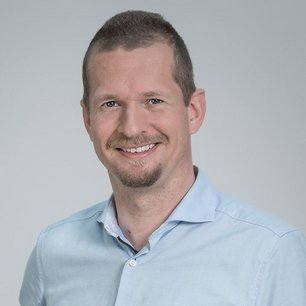 J.Arlt
J.Arlt
Prof. Dr. Niels Halama
Chair
Prof. Dr. Stefan Tenzer
Vice chair
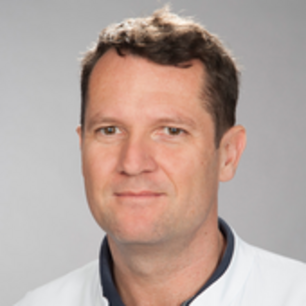 UMC
UMC
Prof. Dr. med. Thomas Kindler
 privat
privat
Dr. Julia Neuhaus
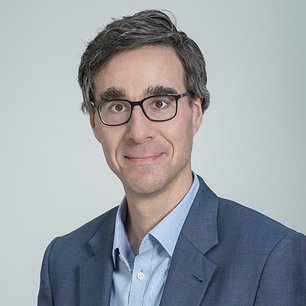 J.Arlt
J.Arlt
Prof. Dr. Michael Platten
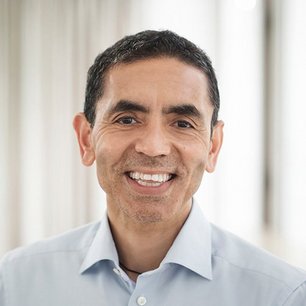 Biontech SE, 2021
Biontech SE, 2021
Prof. Dr. Ugur Sahin
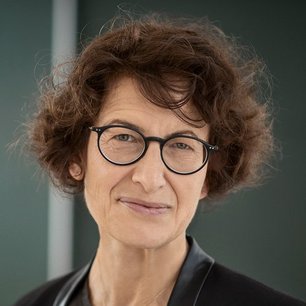 Biontech SE, 2021
Biontech SE, 2021
Prof. Dr. Özlem Türeci
Scientific Advisory Board
The Scientific Advisory Board advises the Scientific Management Board up to twice a year.
Prof. Dr. Ivan Dikic (Goethe University Frankfurt)
Prof. Dr. Olivera Finn (University of Pittsburgh)
Prof. Dr. Claudia Lengerke (University Medical Center Tübingen)
Prof. Dr. Johanna Olweus (Oslo University Hospital)
Prof. Dr. Cornelis J.M. Melief (Prof. Emeritus Leiden University Medical Center and ISA Pharmaceuticals’)
Prof. Dr. Maria Sibilia (Medical University Vienna)
Prof. Dr. James Spicer (Kings College London)
The five DKFZ main research programs
- Cell and Tumor Biology
- Functional and Structural Genomics
- Cancer Risk Factors and Prevention
- Immunology, Infection and Cancer
- Imaging and Radiooncology
HI-TRON Mainz is part of the research topic D: Immunology, Infection and Cancer
The immune system is the body's most powerful weapon to fight pathogens and cancer cells. However, pathogens and tumor cells use numerous tricks to evade the immune defense. The Divisions and Research Groups of the Tumor Immunology topic investigate the crucial mechanisms behind the function and behavior of the immune cells of the innate and adaptive immune system as well as the interaction with their microenvironment in the healthy body and in diseases. The fundamental principles behind the development, activation, regulation, differentiation and death of immune cells as well as the molecular mechanisms behind the diversification and plasticity of the immune system are complex. The understanding of these principles is essential for the development of targeted strategies to influence the immune system in the fight against cancer, autoimmune and infectious diseases as well as for the promotion and design of new therapeutic approaches. To answer their respective research questions, the individual groups develop and use sophisticated experimental model systems and technologies such as genetic barcoding, structural biology techniques and methods as well as platforms for high-throughput analyses at the single-cell level.




